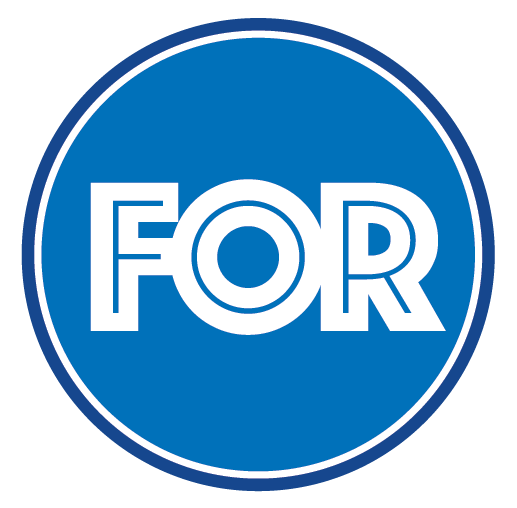Types of Long-Term Care
Assisted Living Facilities
Assisted Living provides group housing for 2 or more unrelated adults along with services including meals, housekeeping, and personal care services provided directly or through written agreement with a licensed home care agency. Assisted living facilities provide a different level of care than nursing homes. Assisted living facilities do not provide ongoing skilled nursing care.
There are three types of assisted living facilities:
Adult Care Homes serve seven or more adults who may require 24-hour supervision, and/or, assistance with personal care needs. Individuals live in a group residence where there is a common dining area and common areas for social and recreational activities. Staff provide personal care supervision and health care services. Other services include providing three meals per day, laundry and housekeeping services, and a program of individual and group activities. Some facilities provide special units for persons with Alzheimer's disease and other related disorders. Such units are usually in a secure part of the facility and have activity programs specifically designed for persons with dementia.
Family Care Homes serve 2 to 6 adults who may require 24-hour supervision and/or assistance with personal care needs. Family Care Home residents live in the home of an unrelated person. Staff provide the same basic services as those provided in adult care homes.
Multi-Unit Assisted Housing with Services are unlicensed facilities that house adults who do not require 24-hour supervision or assistance with personal care needs. Individuals typically live in their own apartment within a multi-unit complex with protective oversight. If personal care and nursing services are needed, they are arranged by housing management and provided by a licensed home care or hospice agency through an individualized written care plan.
Learn more about What is Assisted Living from the National Council on Aging.
Skilled Nursing Facilities
Historically called ‘nursing homes,’ skilled nursing facilities (SNF) provide services and supports to people who need ongoing nursing care provided by a skilled nursing professional. SNFs provide a standard set of core services that include room and board, personal care, nursing services, dietary services, social services, activities, and housekeeping.
SNFs must also provide or arrange for therapy, such as physical therapy, occupational therapy or speech/language therapy; dental care; podiatry services; optometry services and transportation to medical appointments. Some SNFs provide temporary skilled nursing care and rehabilitation therapy after an injury or hospital stay.
Other SNFs may have a special unit for residents with Alzheimer’s disease or another form of dementia. These units may be referred to as "Memory Care", "Dementia", or "Alzheimers" units.
Continuing Care Retirement Communities
Continuing Care Retirement Communities (CCRCs) are housing communities that offer several levels of care in one location. Where a person lives depends on the level of care that is needed. Within the same community, there may be individual homes or apartments for residents who live on their own, an assisted living facility for people who need some help with daily activities, and a nursing home for those who require higher levels of care. Residents move from one level of care to another based on their needs but still stay within the CCRC campus or location.
CCRCs generally charge a large payment before a person moves in (called an entry or entrance fee) and then charge monthly fees. The fees vary according to whether the resident owns or rents the living space, the size and location of the residence, the amenities chosen, whether the living space is for one or two individuals, the type of service contract chosen, and the current risk for needing intensive, long-term care.
CCRCs in North Carolina are regulated by the Department of Insurance. Any questions about CCRCs may be directed to the Dept. of Insurance at (919) 807-6612 or by visiting https://www.ncdoi.gov/licensees/continuing-care-retirement-communities-ccrc.
The increasing availability of Home and Community Based Services (HCBS) allow many of us to receive long-term care while remaining in our own homes and continuing to enjoy their independence. For many people it is less expensive to receive care at home than to move into a facility, such as a nursing home or assisted living center.
More information is available: North Carolina Home and Community Based Services.
Here is a guide from the Alzheimer’s Association called Choosing an In-Home Care Professional that might be of use.
There are many types of Home and Community Based Services including:
Personal Care Services are provided by a personal care aide, also called a home health aide. Typically, an aide will go to someone’s home for several hours a day to provide assistance with household chores and activities of daily living such as meal preparation, bathing, dressing, etc. Personal care aides are usually not nurses and usually cannot provide skilled nursing care.
Transportation and Meal Services are available in many counties. Some of us can continue to live in our own homes by receiving at least one nutritionally sound meal delivered daily or by arranging transportation for medical appointments and errands.
Adult Day Care provides supervision and activities for 4 or more hours a day at a community center, senior center, or similar location. Providers offer referral to and assistance in using other community resources. Transportation to and from the program may be provided or arranged.
Respite Care is short-term, temporary supervision or care when the primary caregiver cannot be there or needs a break or time off from caregiving responsibilities. Respite care can be provided in-home or in a facility.
More resources for help with finding community support, can be found: https://www.ncdhhs.gov/assistance/division-aging

